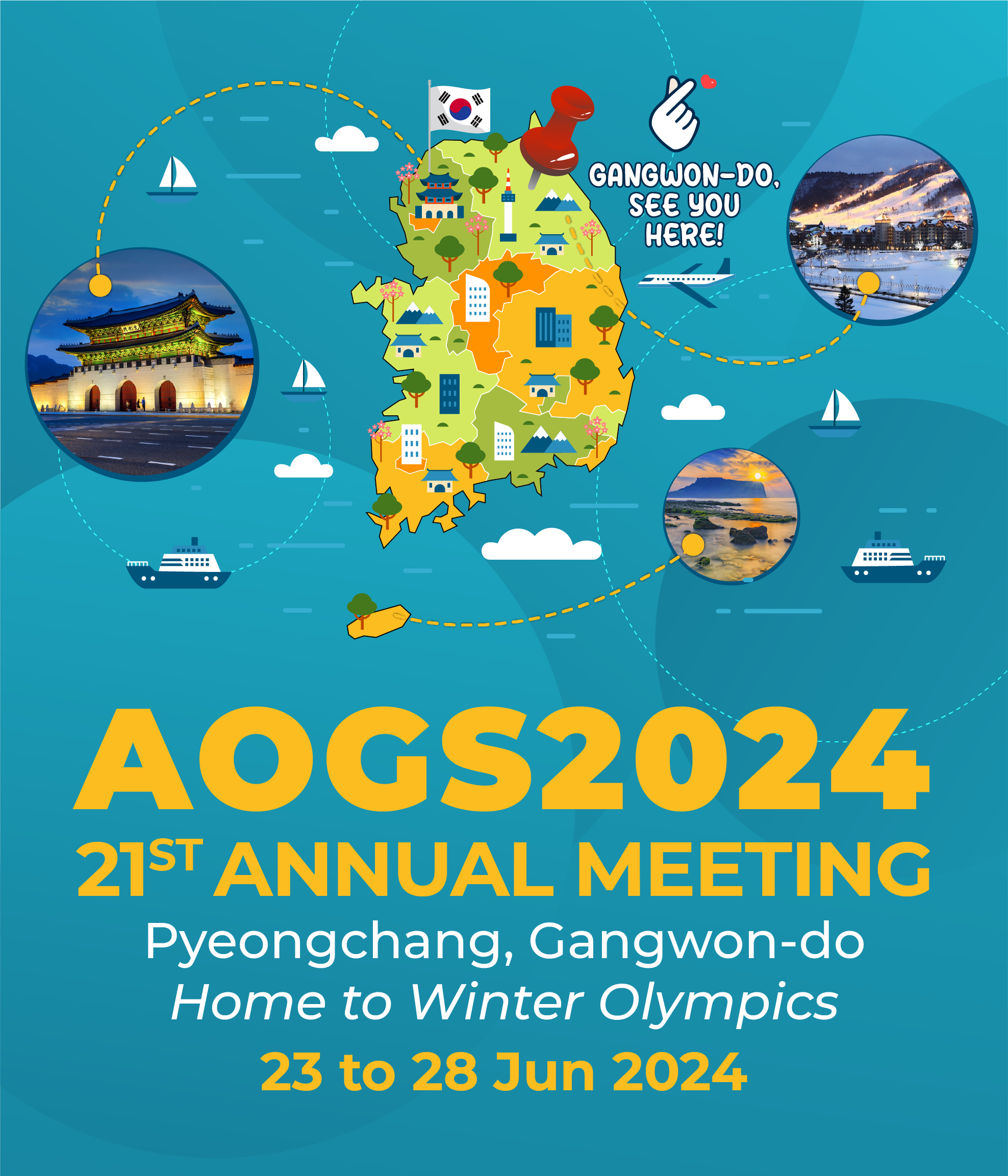
Axford Lecture | 24 Jun (Mon) 4:00 PM – 5:30 PM | Music Tent, Alpensia Resort

Axel TIMMERMANN
Director and Professor
IBS Center for Climate Physics (ICCP), Pusan National University
Axel Timmermann is the Director of the IBS Center for Climate Physics (ICCP) at Pusan National University, South Korea, where he also holds a Distinguished Professorship. Dr. Timmermann received his PhD in 1999 from the University of Hamburg, Germany. After 2 years as a postdoc at the Royal Netherlands Meteorological Institute and 3 years as research team leader at the IfM-GEOMAR/University of Kiel in Germany he moved to the University of Hawaii to work first as an associate professor and then from 2009-2016 as a full tenured professor at the International Pacific Research Center and the Department of Oceanography. In 2017 he launched the ICCP – one of the South Korea’s largest climate research centers. Dr. Axel Timmermann was the recipient of the 2008 Rosenstiel Award in Oceanographic Science, the 2015 University of Hawai’i Regents’ Medal for Research Excellence and the 2017 Milanković Medal from the European Geosciences Union. He is a Fellow of the American Geophysical Union and has been listed consecutively as a Clarivate Highly Cited Researcher from 2018 to 2023. His more than 220 publications cover a wide range of subjects, including Quark-Gluon Plasma, relativistic hydrodynamics, the El Niño-Southern Oscillation, glacial cycles, abrupt climate change, climate prediction, human evolution, isotope geochemistry, eco-cultural modelling and dynamical systems’ theory. Currently he is working on Southern African paleo-climate reconstructions, a model of terrestrial life and the foundations of quantum mechanics. Dr. Timmermann has conducted oceanographic, limnological and paleo-climate field work in the Arctic Ocean, on remote Pacific Islands, and in caves in South Korea and Botswana.
Past Climate Impacts on Human Evolution
Our genus Homo emerged in Africa around 2-3 million years ago – a time characterized by gradual cooling and an intensification of glacial-interglacial variability. How our human ancestors have responded and eventually adapted to these massive disruptions in climate still remains a mystery.
In my lecture I will introduce a suite of numerical computer models that captures important aspects of human evolution, including dispersal, habitat preferences, selection, speciation, cultural adaptation and interbreeding with other hominin species. Forcing these models with paleo-climate simulations allows us to address a series of fundamental questions regarding the role of climate variability in human evolution.
Using density-based reaction diffusion models and agent-based model simulations, I will demonstrate how Milanković cycles created important green migration corridors for hominins, which contributed to the peopling of Eurasia, as well today’s overall genetic diversity. I will also review examples that document the destructive role of past climate shifts in causing large-scale early human depopulation events across Europe around 1.126 million years ago and in Africa around 900 thousand years ago. By combining paleo-climate information with existing anthropological and archaeological data, we can also reconstruct how the human climate niche expanded over the Pleistocene and whether our hominin ancestors developed certain ecological preferences, that allowed them to buffer the effects of past climate change and boost their resilience. It turns out, that starting from ~800 thousand years ago, humans became extremely mobile, versatile, and also developed a certain inclination to live in areas of higher bio- and biome diversity. Whether this transition, which came along with improved tools and fire making skills, is a direct adaptive response to the increasing intensity of glacial cycles after the Mid-Pleistocene, remains an open question; but it certainly allowed humans to survive and thrive in previously inhospitable areas.
Recent efforts to introduce climate and paleo-vegetation information into the discussion of human origins have opened new perspectives to understand how climate has shaped life on our planet and that of our own predatory species.
I will conclude my lecture with some general remarks on how the accelerating transgression of planetary boundaries (including global warming) may potentially affect the long-term future of our species.
